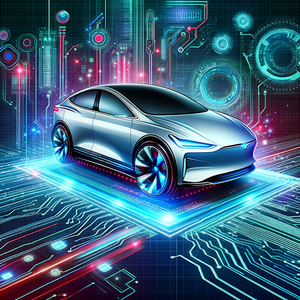Transitioning from a traditional internal combustion engine (ICE) design background to designing electric vehicles (EVs) is a plausible and promising move for a mechanical engineer, especially given the rapidly growing demand for EVs globally. Here's a step-by-step guide to facilitate this transition:
Self-Education and Training
- Battery Technology: Understand the basics of battery chemistry, design, and management. This is crucial since battery packs are an essential component of EVs.
- Electric Motors and Drivetrains: Delve into the design, working principles, and types of electric motors, especially those commonly used in EVs.
- EV Systems: Learn about the various systems involved in EVs like the cooling system, power electronics, inverters, and regenerative braking.
Formal Education and Certifications
Consider pursuing a postgraduate degree or certification course in electric vehicle technology or a related field. Many institutions now offer specialized courses targeting professionals who wish to transition to the EV sector.
Attend workshops, webinars, and seminars focused on EV technology and advancements.
Hands-On Experience
Tinker with hobbyist kits or projects related to electric motors, battery management systems, or EV conversions. This hands-on experience can be invaluable.
Consider working on an EV conversion project, where a traditional ICE vehicle is converted to electric.
Networking
- Join EV-focused professional groups or associations. Sites like LinkedIn have multiple groups dedicated to EV professionals sharing resources, job postings, and updates.
- Attend industry conferences, trade shows, and seminars related to EVs to network with professionals and stay updated with industry trends.
Software Proficiency
- Familiarize yourself with software tools used in the design and simulation of electric drivetrains, batteries, and other EV-specific systems.
Internships and Entry-Level Positions
- If possible, take on an internship or a junior role in an EV company. This step can provide direct experience and understanding of the industry's ins and outs.
Collaborate and Team Up
- Work closely with electrical engineers, electronics specialists, and software engineers. EV design is multidisciplinary, and understanding the integration of various components is crucial.
Stay Updated
- The EV industry is rapidly evolving. Regularly follow journals, industry news, and publications to stay abreast of the latest technologies, breakthroughs, and trends.
Leverage Your ICE Experience
- While ICEs and EVs are different, many principles of mechanical engineering, thermodynamics, materials, and system integration still apply. Highlight your expertise in these areas and emphasize your adaptability and eagerness to apply these skills in the EV realm.
Tailor Your Resume and Portfolio
- Update your CV to emphasize any courses, projects, or experiences related to EVs. Create a portfolio that showcases any relevant projects, even if they were self-initiated or done during training.
Remember, the core principles of mechanical engineering that you've learned in your ICE-focused career are still very valuable. With the right approach, a strong commitment to learning, and strategic networking, the transition to an EV-focused career can be both smooth and rewarding.


